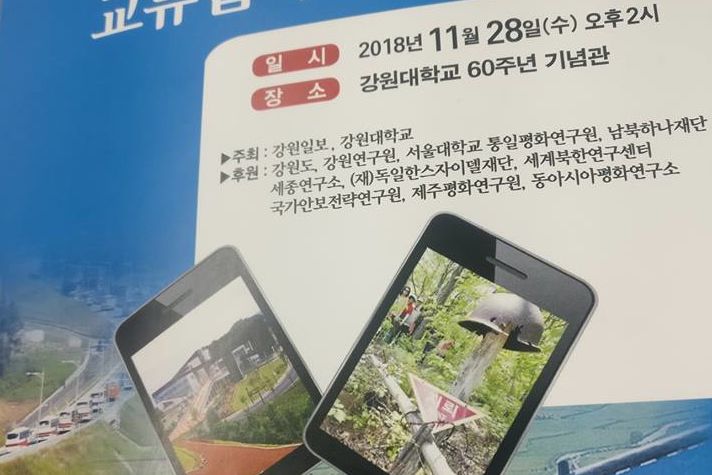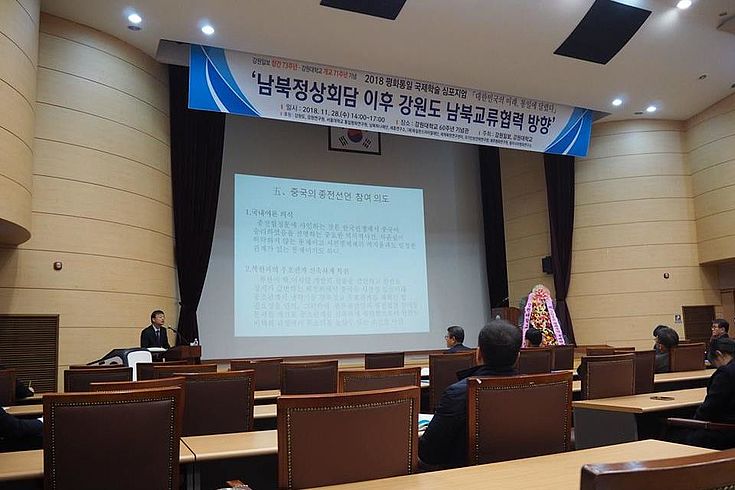Forum
Gangwon Province and the DMZ – Engagement for Peace along the inner-Korean Border
Poster
HSS
Gangwon Provice and the newspaper Gangwon Ilbo are long-term partner of the Hanns Seidel Foundation Korea. Separation and unification and especially the issue of a border dividing two countries as in Germany in the past and in Korea until today have connected the partners and lead many exchanges over the last years. In light of the recent inner-Korean rapprochement HSF Korea was invited to the forum on “Ways towards a South-North Korean Exchange Cooperation Direction in Gangwon Province” on 28 November 2018. Felix Glenk, Project Manager of HSF Korea, shared insights of the foundations work in North Korea and potential for an involvement of Gangwon Province with the audience.
Presentation
HSS
Opening remarks were given by the Director of Gangwon Ilbo, Lee Hee Jong, by the governor of Gangwon Province, Choi Moon Sun, and the head of Gangwon National University, Kim Hyeon Yeong. They emphasized the wish for a peaceful cooperation with North Korea and the special role Gangwon Province could play in the future. The keynote speech was given by Ko Kyeong Bin, Chairman of the Board of the Korea Hana Foundation and addressed the change on the Korean Peninsula and the attitude towards it. Presentation at the forum were given by Prof. Hong Hyeon Ik from Sejeong Institute. He referred to the economic opportunities through the current developments in Korea, and specifically mentioned the plans for infrastructure project on the West Belt towards China and East Belt towards Russia on the Korean Peninsula. The economic potential, however, could only be realized when North Korea takes practical steps to denuclearize. Same applies for a potential role of Japan regarding economic cooperation. Prof. Hong also referred to the potential of the DMZ as a nature reserve, Rason port in the Northeast of the Korean Peninsula as a future major transport hub in the region and the advanced development of infrastructure in China and Russia that already reach the border region to North Korea. The second presentation was given by Yun Ho from Zhejiang University in China. He summarized China´s attitude towards the developments on the Korean Peninsula and possible implications.
A roundtable with seven discussants followed the presentations. Felix Glenk from HSF Korea started to briefly introduce the work of HSF in South Korea over the last 30 years and in North Korea over the last 15 years. Long-term engagement showed that cooperation is possible not only when the political conditions are met, but when trust exists between equally respected partners. The work of HSF has also shown that trust is most easily created through dialogue. Dialogue about environmental issues beyond borders is the way of the Foundation to build platforms for this dialogue. HSF Korea will also continue to work with both parts of Gangwon Province to bring both Koreas closer together. Other discussants included Dr. Lee Seong U from the Jeju Peace Institute and Prof. Yoon Jae Seon from Hallim University. Topics targeted potential for engagement, but also challenges that need to be overcome.


